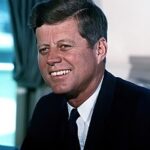President Kennedy’s civil rights leadership underwent remarkable transformation from cautious politician to moral champion. Initially hesitant due to political calculations, Kennedy evolved into a powerful advocate for racial equality. His presidency marked a pivotal moment in American civil rights history.
The Decision to Act
Kennedy’s civil rights commitment crystallized during the Freedom Rides crisis of 1961. He deployed federal marshals to protect brave activists challenging segregation. This decisive action demonstrated federal authority over state resistance. The Birmingham Campaign of 1963 further galvanized Kennedy’s resolve. ⚠️ Warning signs of national unrest prompted stronger presidential leadership.
Legislative Foundation
Kennedy proposed comprehensive civil rights legislation in June 1963. His televised address called civil rights a “moral issue” facing America. The proposed legislation addressed voting rights, public accommodations, and employment discrimination. These proposals became the blueprint for the Civil Rights Act of 1964. 📊 Data showed growing public support following Kennedy’s moral appeals. His speeches shifted national conversation from political expediency to ethical imperative.
Impact:
Kennedy’s civil rights advocacy created transformative consequences that reshaped American society permanently. His moral leadership established the presidency as a champion of equal rights.
Immediate Political Consequences
Kennedy’s civil rights stance fractured the Democratic Party’s Southern coalition. 🔥 Conflicts erupted between traditional Southern Democrats and progressive party members. However, this repositioning attracted African American voters to the Democratic Party. The political realignment fundamentally altered American electoral geography for decades. Kennedy’s courage inspired other politicians to embrace civil rights causes.
Legislative Legacy
Kennedy’s civil rights proposals became the Civil Rights Act of 1964. President Johnson successfully pushed Kennedy’s vision through Congress after the assassination. The legislation banned discrimination in public accommodations and employment. Voting rights protections expanded democratic participation for millions of Americans. These achievements fulfilled Kennedy’s promise of federal civil rights protection.
Long-term Social Impact
Kennedy’s moral leadership accelerated the civil rights movement’s progress. 🌍 International effects included improved America’s global reputation during the Cold War. His televised addresses educated white Americans about racial injustice. The presidential endorsement legitimized civil rights activism nationwide. Kennedy’s evolution from cautious politician to moral leader inspired future generations of civil rights advocates.
